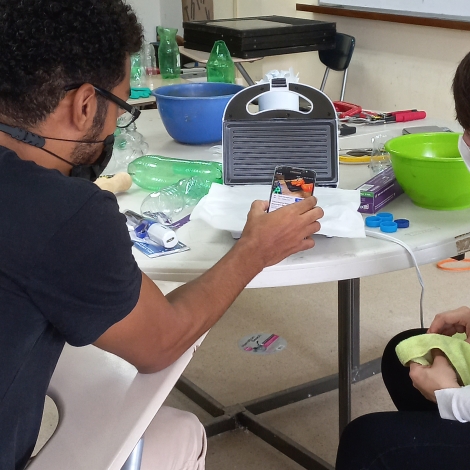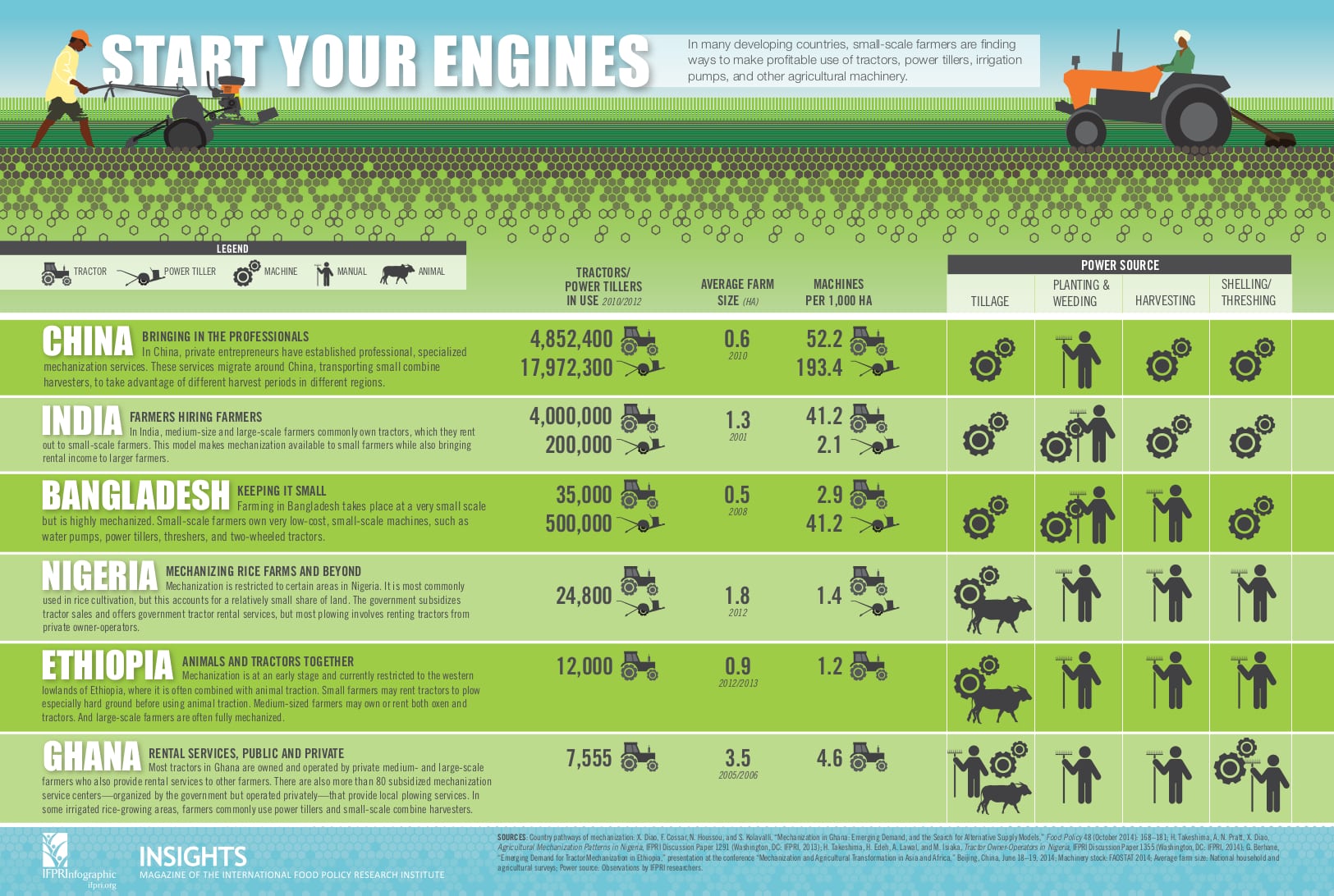Garbage strewn on the ground and in the water is a mounting problem among the communities living in the Guna Yala archipelago of islands off the coast of Panama. The inhabitants of this island territory have access to canned food and plastic containers, but they have few options for disposing of the packaging waste. The islands, also known by the name San Blas, are strewn with trash in plain sight of the tourists who are a major source of local income. It’s to the point that the sea floor is not visible through the floating garbage.
A start-up called Re-Inventa would like to help. This Panamanian start-up led by young mechanical engineers promotes the economic, social and environmental values of garbage management in Panama.
One of our team members at Engineering for Change is a part of Re-Inventa, Carolina Rojas, an E4C Program Associate and former Expert Fellow. In June, Ms. Rojas and her colleagues won an award at the UN World Urban Forum for their plans to clean up trash in Panama.
That win has radically changed the Re-Inventa team’s perspective, Ms. Rojas says.
As she tells it, Re-Inventa went to the academic event without much prospect of success. They had applied to the Ciudades Incluyentes thematic program. There, the project was pre-selected for the Solidarity Economy debate table, with two Colombian initiatives. They would have to compete against them through pitch sessions.
“Honestly, we didn’t think we could win, especially after seeing the presentations of our peers. Besides, we did not have as much trajectory as they did — Re-Inventa doesn’t celebrate its first official year until September —. We were already more than satisfied to participate,” Ms. Rojas says.
However, the Panamanian start-up received two of four votes and won the competition. Its members agreed that the jury rewarded their approach and purpose, rather than concrete results.
“The event was a great trigger to start implementing our goals as soon as possible. In previous years we have been in two venture incubators and applied to several funds. But this step told us: let’s do it! It was decisive for us to stop planning our strategies and test the regular operability of our ideas.”
The inception of Re-Inventa’s initiative has roots in E4C. The group of researchers that today make up Re-Inventa first turned to waste in 2019. At that time, they did not define themselves as entrepreneurs. It was more of a university-based philanthropic initiative.
“We were working in the area of energy and access to biomass stoves in indigenous communities in Panama during the E4C Cohort. As a result, we made a series of visits to communities in the Guna Yala region. There, we saw the severe problem they had with garbage,” Ms. Rojas says.
The inhabitants of this island territory have access to canned food and containers that generate large amounts of metal and plastic waste. Visitors see trash everywhere around the area, to the point that they can’t even see the sea floor through the floating garbage.
“That same year, we met a company that participated in ISHOW with a recycled plastic printer (Gigabot X). We started a whole communication with them to see what we could learn about it. That’s also how we took note of the Project Plastic initiative, a series of machines that can be used for low-scale recycling.”
Over time, the Re-Inventa team became aware of the need to form a start-up in order to apply for funding and other resources essential for its growth.
“We have been working on how to develop a social enterprise model, focused on extending local capabilities to transform waste. We also hope to become a circular economy Fab Lab,” Ms. Rojas says.
Gathering allies
The Re-Inventa team had to postpone the idea of working with the waste that surrounds the inhabitants of Guna Yala and focus on a closer location. While the trash in Guna Yala was the impetus for founding Re-Inventa, the historic center of Panama City will be the first place they plan to implement their ideas. That space also faces difficulties in handling waste.
Subsequently, Ms. Rojas and her colleagues identified local social actors involved in community garbage management. So far, they have forged multiple links and established relationships with different partners.
“One of our strategic allies is the La Matanza Innovation Center. They have a very extensive community liaison and have helped us to convene different people, especially women. We have a relationship with the local government and with the government office that monitors actions in the historic center. This last year and a half have really been about strengthening relationships with those who can help,” Ms. Rojas says.
In terms of access to technological resources, the start-up has the support of another Panamanian FabLab from the Technological University of Panama City, which has allowed it to experiment with basic tools such as ovens, dehydrators and mechanisms for processing bio-materials, among others. The project is also affiliated with the Global Shipping initiative of the World Economic Forum. This link enabled them to apply for and win an economic fund that will make it possible to manufacture their equipment for plastic injection.
“In addition, they are donating a shredder and another Global Shipping affiliate wants to help us finance the plastic printer. This coming year is really when we are going to get our main technological resources,” Ms. Rojas says.
In the next three years, the Re-Inventa team hopes to have a waste transformation center in the historic center of Panama City. In addition, they hope that this space will be led by citizens. In this way, the start-up could move on to other communities and thus gradually create small regional hosts.
“We have been looking for methods and technologies that can be reasonable in cost at the community level and that will enable the transformation of waste at the local level. At the same time, we want this to represent an economic remuneration for citizens. Internationally, there are many people creating products with trash but on smaller scales: some DIY, small objects or handicrafts,” Ms. Rojas says. “We aspire to a change of perspective so that vulnerable communities can manage waste at an industrial level. With the equipment we will implement, we can make quality products such as door knobs, vegetable chopping tables, almost any idea that the imagination allows.”
Reinventing the future of waste
Since Re-Inventa’s participation in WUF, the scientific team has identified other challenges. According to Ms. Rojas, there is still a need for further deepening in terms of evidence through data. These figures will be able to answer the following questions: What is the real extent of the garbage problem in the historic center of Panama City? How much waste is actually generated by the different actors in the community, including the local medical facility?
The researcher believes that these data will provide elements for a more individualized and effective local management strategy.
Ms. Rojas is also concerned about the lack of multidisciplinary integration between the different disciplines that support the development of cities. At the international meeting, the expert noted that most of the time urban planners, sociologists and engineers work in an uncoordinated manner. According to her, this has repercussions on the implementation of public policies that generally lack adequate technical advice.
“What became clear to us from WUF is that you have to generate evidence and work directly with what you can”, she said.
Moreover, thanks to its results in the pitch competition, Re-Inventa will join the InterHabitat network of Ciudades Incluyentes initiative. Through this support, the project will receive advice from organizations such as UNHCR, UN-Habitat and the International Organization for Migration (IOM).
About the Author
Claudia Alemañy Castilla is the 2022 Engineering for Change Editorial Fellow and an award-winning journalist who splits her time between homes in Cuba and Spain. Among her accomplishments, Ms. Alemañy Castilla has developed the COVID-19 Cuba Data Project for Juventud Técnica Magazine in Havana, Cuba, where she was a staff reporter specialized in science, technology and environmental journalism. She has also reported for Women in Science (a publication of País Vasco University), the Cuban Institute of Cultural Research ‘Juan Marinello,’ and others.

